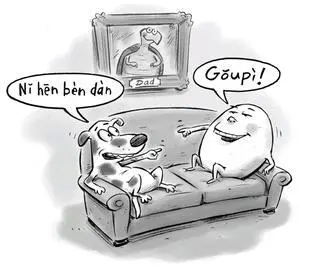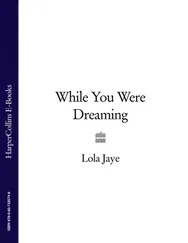Bookworm, nerd, lacking social skills. Literally “book idiot.” 呆子 Dāizi means “idiot” or “fool” but is not often said alone.
懒虫 lǎnchóng ( lahn chong)
Lazy bones. Literally “lazy bug.” Said affectionately.
小兔崽子 xiǎotù zǎizi ( shaow too dzigh dz- zǎi rhymes with “high”)
Son of a rabbit. A gentle, teasing insult common among older people and directed at younger people. Ironically, parents often use this term to tease their children.
傻冒 / 傻帽 shǎmào ( shah maow)
A gentle, affectionate jest-closer to something silly like “stupidhead.” Literally “silly hat.” 傻 Shǎ ( shah ) means “silly” or “dumb.”
傻瓜 shǎguā ( shah gwah)
Dummy, fool. Literally “silly melon.” An extremely common insult, mostly used affectionately, and in use as early as the Yuan dynasty (1279-1368).
呆瓜 dàiguā ( die gwah)
Dummy, fool. Literally “silly melon.”
面 miàn ( myinn)
Northern Chinese slang for “timid” or “weak.” Literally “wheat flour,” as in the ingredient for noodles and bread, suggesting that the person is soft and flimsy as those foods.
面瓜 miànguā ( myinn gwah)
Timid, coward. Literally “timid melon” (or still more literally “flour melon”). Used only in northern China.
白痴 báichī ( buy chih)
Perhaps the most universal and commonly used term for “idiot” or “moron.”
十三点 shísān diǎn ( shh sahn dyinn)
A mild, usually affectionate insult meaning “weirdo” or “crazy.” Literally “thirteen o’clock.” Originated in Shanghai and used a bit in other parts of southern China as well, though it is fast falling out of favor and is mainly used by older people now. The term refers to the chīin báichī (above), as the character for chī, 痴, is written using thirteen strokes. Other theories maintain that it refers to an illegal move in a gambling game called pai gow, 牌九 páijiǔ ( pie joe ) in Mandarin, or that it refers to an hour that clocks do not strike (though nowadays thirteen o’ clock is possible in military time).
半弔子 / 半吊子 bàn diàozi ( bahn dyow dz)
Someone deficient in skill or mental ability. In ancient China, copper coins had square holes in the center and were strung together on a string. One thousand coins strung together formed a diào. Half of that (five hundred coins) was called 半弔子 / 半吊子 bàn diàozi ( bahn dyow dz ). Northern Chinese only, and seldom used today, but necessary to understand the more commonly used insult below.
二百五 èrbǎiwǔ ( er buy woo)
Dummy, idiot, moron. Literally “two hundred fifty,” referring to half a bàn diàozi(see above). This is an extremely common insult; everyone knows it and probably grew up hearing it a lot, but like shísān diǎn(above), it’s considered a bit old-fashioned now.

A number of (usually) affectionate Chinese insults involve eggs. They most likely come from the much stronger insult 王八蛋 wángbādàn ( wahng bah dun ), literally “son of a turtle” or “turtle’s egg” and equivalent to “son of a bitch” or “bastard” in English. (The possible origins of wángbādànare explained in the next chapter.) The insults below are mild and have shed any profane associations, much in the way we English speakers have mostly forgotten that phrases like “what a jerk,” “that bites,” and “sucker” originally referred to sex acts.
笨蛋 bèndàn ( ben dahn)
Dummy, fool. Literally “stupid egg.” 笨 Bèn ( ben ) alone can be used in many insults and means “stupid.”
倒蛋 / 捣蛋 dǎodàn ( daow dahn)
To cause trouble.
滚蛋 gǔndàn ( gwen dahn)
Get lost! Literally “roll away, egg” or “go away, egg.”
坏蛋 huàidàn ( hwigh dahn)
Bad person. Literally “bad egg.”
糊涂蛋 hútúdàn ( who too dahn)
Confused/clueless person. Literally “confused egg.”
穷光蛋 qíongguāngdàn ( chyohng gwahng dahn)
An insulting term for a person without money. Literally “poor and have-nothing egg.”
混蛋 hùndàn ( hwen dahn)
Bastard. Literally “slacker egg.” 混 Hùn ( hwen ) means “to loaf,” “to wander around all day doing nothing,” or “to be up to no good.” Relatedly, 混混 hùnhùn ( hwen hwen ) or 混子 hùnzǐ ( hwen dz ) is used for a layabout, deadbeat, slacker, or any idle person up to no good.
龟孙子 guī sūnzi ( gway swen dz) or 龟儿子 guī érzi ( gway er dz)
Bastard. Literally “turtle grandson.” An insult that has lost, like “egg” insults, any obscene connotation.
蠢货 chǔnhuò ( chwen hwuh)
Dummy, moron. Literally “silly good.”
菜 cài ( tsigh)
Literally “vegetable.” Can be an insulting term meaning “ugly” and may also be less insultingly used to describe someone who is bad at doing something. For example, 你电脑真菜 nǐ diànnǎo zhēn cài (nee dyinn now jen tsigh) means “You suck at using the computer.” Similarly, 菜了 cài le ( tsigh luh ) is “to fail.”
木 mù ( moo)
Stupid, slow, insensitive. Literally “wooden.”
脑子进水 nǎozi jìn shuǐ ( now dz jean shway- zi is like saying a very short bzz , but with a d sound instead of the b)
Blockhead, dummy. Literally means “water in the brain.”
脑子养鱼 nǎozi yǎng yú ( now dz yahng yee)
Blockhead, dummy. Literally “fish feed in the brain” or “fish being raised in [one’s] brain.” A variant on “water in the brain” (above), more popular among younger people.
废人 fèirén ( fay ren)
Useless person.
窝囊废 wōnangfèi ( wuh nahng fay)
Loser. Literally “good-for-nothing useless.”
软脚蟹 ruǎnjiǎoxiè ( rwun jow shih)
Wuss, wussy, chicken. Literally “soft-legged crab.” Originated in Suzhou, where crab legs are a popular food and strong legs with lots of meat are, obviously, preferred over soft legs with no meat. Mostly used in the South. Northerners do not use the term but do understand its meaning when they hear it.
吃素的 chīsùde ( chih soo duh)
Wuss, pushover, sucker. Literally “vegetarian,” referring to Buddhist monks because they are kind and merciful (and don’t eat meat). Usually used defensively, as in 我可不是吃素的 wǒ kě bushì chīsùde (wuh kuh boo shih chih soo duh), “I’m not a wuss,” or 你以为我是吃素的? nǐ yǐwéi wǒ shì chīsùde? (nee ee way wuh shih chih soo duh): “Do you think I’m a wuss?”
神经病 shénjīngbìng ( shen jing bing)
Crazy, lunatic. Calling someone this connotes something like “What the hell is wrong with you?” Literally “mental illness.”
有病 yǒubìng ( yo bing)
Crazy. A slightly more common and mild variation on shénjīngbìng(above). It’s like saying, “What? No way-you’re crazy!” Literally “have a disease.”
猪 zhū ( joo) or 猪头 zhūtóu ( joo toe)
Moron. Literally “pig” and “pighead,” respectively.
半残废 bàn cánfèi ( bahn tsahn fay)
Literally “half-handicapped” or “half cripple.” Jokingly said of a man who is shorter than his woman. 残废 Cánfèi ( tsahn fay ) means “cripple” or “handicapped” and is a mocking term for a short man. Both terms can be real insults but, depending on who’s saying them and how, can also be affectionate jests.
Читать дальше











